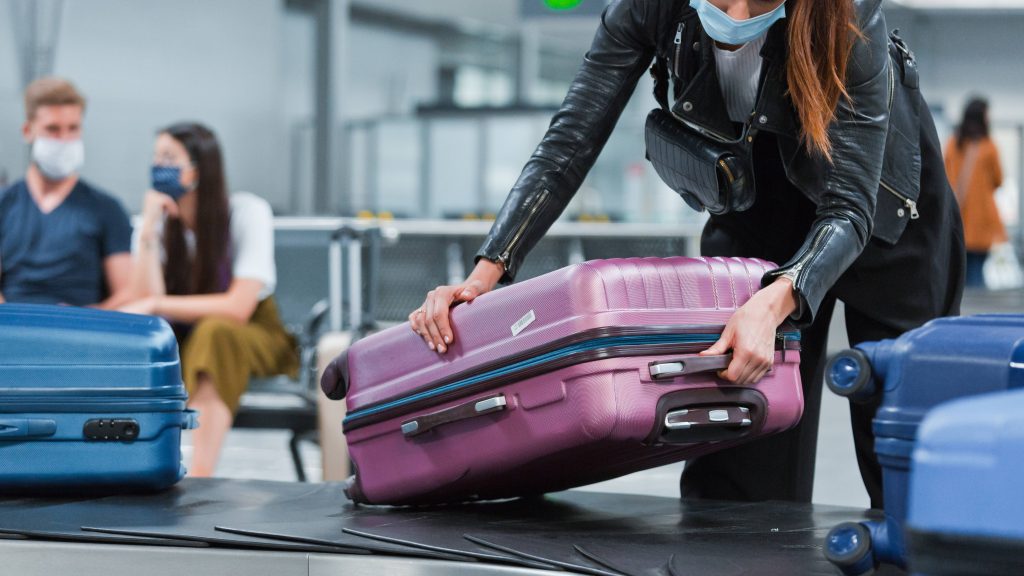-
COVID-19
COVID-19 considerations for your winter travel getaway

If you are planning a winter vacation or getaway, knowing what to expect and what you will need to do prior to travel due to COVID-19 is important.
"There are some simple guidelines that people can follow to enjoy their time away from home and to return without COVID-19 and avoid its attendant complications or disruptions," says Dr. Abinash Virk, a Mayo Clinic infectious diseases specialist.
Here's what you need to know.
Domestic travel
When traveling by air, the Centers for Disease Prevention and Control (CDC) and Mayo Clinic recommend that you:
- Do not travel if you have symptoms of COVID-19 or test positive for COVID-19 without symptoms.
- Delay travel until you are up to date with your COVID-19 vaccinations, including booster vaccinations. If you are not up to date with your COVID-19 vaccinations and need to travel, get tested both before and after your trip.
- Check your destination to determine COVID-19 cases and transmission rates to decide if it is safe for you to travel there.
- For example, some U.S. cities have mask mandates and proof of vaccinations for indoor public places, such as restaurants and public venues.
- Prepare to be flexible during your trip, as COVID-19 restrictions and policies may change during your travel.
- Make sure you understand and follow all restrictions upon arrival at your destination, including wearing a mask, proving vaccination status, testing or quarantining.
International travel
The CDC and Mayo Clinic make these recommendations for international travel:
- Do not travel if you have symptoms of COVID-19 or test positive for COVID-19 without symptoms.
- Make sure you are up to date with your COVID-19 vaccinations, including booster vaccinations.
- Check your destination's COVID-19 travel recommendations and travel requirements before traveling. Countries, airlines and cruises may have their own entry and exit requirements. If testing is required ― either a polymerase chain reaction test, also known as a nucleic acid amplification test, or an antigen test may be acceptable ― be sure you know which test is accepted. Also leave enough time to receive results within any required time frame prior to departure. You can carry on an antigen testing kit bought in the U.S. for your personal use while traveling internationally. However, these tests may not be accepted for entry to your destination.
- All returning U.S. air passengers, regardless of vaccination status, must show a negative COVID-19 test taken no more than one day before travel back to the U.S. Follow guidelines on your state's COVID-19 website.
- Prepare to be flexible during your trip, as COVID-19 restrictions and policies may change during your travel.
- Make sure you understand and follow all restrictions when you arrive at your destination, including wearing a mask, proving vaccination status, testing or quarantining.
- Be prepared to bring extra money in case you get infected with COVID-19 while at your destination, and you need health care or need to be hospitalized, as many international locations require these fees to be paid up front.
- Be prepared to know how you will manage COVID-19 infection if you become infected while traveling.
Read more:
- COVID-19 travel advice
- COVID-19 tests: Different types and when to use them
- What you need to know if you test positive or negative for COVID-19
- Mayo Clinic expert discourages throat swab COVID-19 test ‘hack’
- Separating COVID-19 fact from fiction
- Mayo Clinic Q and A: COVID-19 treatment options
Information in this post was accurate at the time of its posting. Due to the fluid nature of the COVID-19 pandemic, scientific understanding, along with guidelines and recommendations, may have changed since the original publication date.
For more information and all your COVID-19 coverage, go to the Mayo Clinic News Network and mayoclinic.org.
Learn more about tracking COVID-19 and COVID-19 trends.








